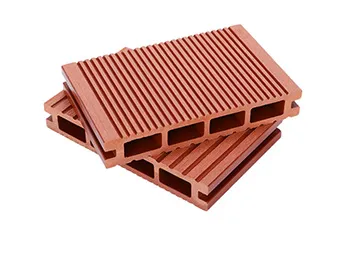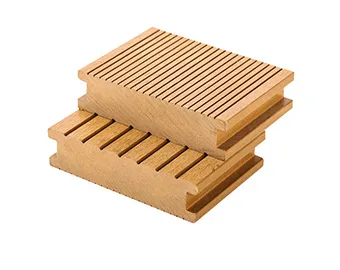When it comes to decking, the choices can be overwhelming. But fear not, for we’re here to dissect the differences between hollow and solid composite decks, and introduce you to the world of Wood Plastic Composite (WPC) panels. OUTWPC, a trailblazer in the industry, provides decking options that come with a 15-year warranty and the promise of longevity. But what exactly are these decks, and which one suits your needs the best? Let’s explore.
Understanding WPC Deck Panel
WPC decks blend wood fibers, plastics, and adhesives into a durable composite. Quality, however, varies across manufacturers. OUTWPC rises above with its warranty-backed decks that, with minimal upkeep, remain in pristine condition for years. The company caters to diverse preferences by offering both solid and hollow constructions, including round hole and square hollow decks.
The Great Debate: Hollow vs Solid Composite Deck


When choosing between hollow and solid composite decks, several factors come into play:
Price Factor
Price-wise, hollow WPC decks are the more economical choice, with square hole decks being the most cost-effective and popular option.
Load-bearing Capacity
Considering a hot tub? Solid decks boast a higher load-bearing capacity, perfect for supporting heavy fixtures. Hollow decks, on the other hand, may falter under such weight, making future floor replacements both troublesome and costly.
Sound Absorption
Solid composite floors excel in sound insulation, offering a serene environment free from the clatter of foot traffic.
Natural Appeal
Solid composite floors mimic the warmth and authenticity of wood, giving off a lifelike wooden aura.
Structural Stability
Round hollow composite floors shine in terms of structural integrity, ensuring even weight distribution across the deck.
Deck Weight
Hollow decks are lighter and more manageable for solo installers, while solid decks, heavier by design, may require additional hands for installation.
Installation Ease
For the lone installer, hollow decks present less of a challenge compared to their solid counterparts.
Temperature Fluctuation Effects
Though WPC decks are engineered to minimize expansion and contraction, these minor shifts can still occur. Hollow core decks, with more room to ‘breathe’, are less prone to warping from environmental changes.
Where Do They Fit Best?
Hollow Core Decks
Ideal for residential decking, hollow core composite floors lend a touch of nature to your home.
Solid Decks
A match for both residential and commercial projects, solid decks cater well to high-traffic areas such as outdoor bars.
The round hole deck in the hollow WPC panel saves you cost without sacrificing the quality of the deck, because the round hole is the best load-bearing structure.
Which Deck is Your Deck?
Both hollow and solid core floors have their merits and demerits. Regardless of the choice, OUTWPC guarantees quality and longevity. The right deck for you depends on your budget, location, and intended use.
In conclusion, whether you opt for the robustness of a solid deck or the practicality of a hollow one, OUTWPC ensures that your decking needs are met with excellence. As we navigate the intricacies of hollow vs solid composite decking and WPC panels, remember that the best choice is one that aligns with your lifestyle and meets your outdoor space aspirations.


